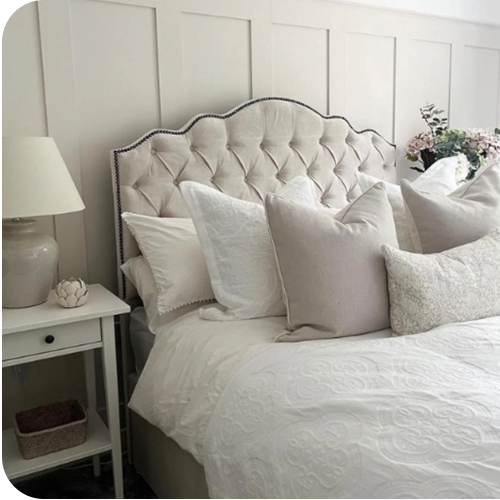The Best Mattress For Age 50
Whether you’re a baby boomer or part of the “sandwich generation,” it’s never too late to start thinking about what type of mattress is best for your body. A good night’s sleep can improve mood and energy levels, so finding the right mattress is more important than ever before. We’ll discuss some different types of mattresses that are popular with people in their 50s and how they can benefit your health.
It’s Smart To Think About What Type Of Mattress Is Good
When you’re in your 50s, it’s smart to think about what type of mattress is going to work best for you. A comfortable mattress is important for quality sleep, so if you need a new one, now’s the time. The right mattress can help you avoid back pain, shoulder pain and numbness or tingling in extremities. It may also be helpful if you have arthritis or other health issues that put stress on the spine.
A memory foam mattress is the most popular type of bedding among older adults because it provides some assistance with pressure relief while helping with breathability at night (which helps prevent overheating).
Mattresses For People In Their 50s
Mattresses for people in their 50s address the medical needs of a growing number of people without sacrificing comfort.
Mattresses are designed to be supportive, but also comfortable. As you age, it becomes more important to support your spine and joints while still allowing for proper alignment and minimizing pressure points that can cause discomfort or pain. This means that the mattress should be supportive, but not too firm—that is where most people go wrong when they buy a mattress at best mattress for age 50!
Most Common Medical Issues
The most common medical issues faced by people in their 50s are back pain, shoulder pain and numbness or tingling in extremities. In fact, according to the Mayo Clinic, these three conditions are so widespread among this age group that they’re considered “the aging process.”
But what exactly does this mean for you? As you get older, your body naturally loses muscle mass and flexibility—and if those muscles aren’t getting enough support from your sleeping surface (which should be firm enough to keep your spine aligned), it can lead to achy joints and other aches that might make sleeping difficult. And if you don’t get enough sleep, it can cause other problems like fatigue or headaches that further affect how well you function during the day.
There are plenty of things that contribute to these common ailments: poor posture has been shown time after time as one of the leading causes of back pain; shoulder pain is often caused by poor posture as well; while numbness or tingling in extremities is often caused by poor blood circulation due either directly or indirectly by bad mattress choices.
Finding The Right Mattress Can Help Relieve
The best way to reduce these symptoms is by finding a mattress that’s right for you. You’ll want a firmness level high enough so there’s no saggy spots where pressure points build up; this will help with circulation and preventing pain when sleeping on your back or side (like a traditional-style pillow top).
One great option is an organic latex mattress because it’s super durable while also being supportive enough for people with back problems – but it’s also perfect if they don’t have any problems at all!
Find A Mattress For Adjustable Bed
You can find a comfortable bed no matter who you are or what your body needs, so keep looking until you find it.
You have plenty of options when shopping for a mattress—so many that it can be overwhelming at first. Mattress shopping isn’t something you’re likely to do often, but if you’re going to spend the money on one, it’s worth taking the time to get it right and make sure that it will serve your needs for years to come. You’ll want something that makes sleeping easy and painless, allowing you to sleep through the night without tossing and turning throughout the night.
In addition to finding a comfortable mattress with good support for your back, shoulders, hips and legs (especially if one of these parts is bothering you), don’t forget about other factors like price point and comfort level in deciding which product is best for your lifestyle.
If there are features such as cooling technology or water-resistant materials available on certain models (or even within certain brands), those might also play into your decision-making process as well because they could make all the difference between waking up feeling refreshed versus sore from lying down all night long.
Conclusion
At this stage in life, it’s important to find the best mattress for age 50. The best way to do that is by trying out different mattresses until you find one that works for you. This process can be time-consuming, but it’s worth it in the end because a good mattress will last for years. The key is to find something that you like and stick with it.



